Introduction
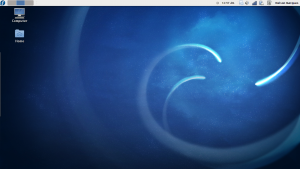
The GNOME project was started in 1997 by Miguel de Icaza and Federico Mena Quintero aiming to provide a swift answer to Windows 95. By this time the KDE project was also on the move, but it required the installation of the QT library which didn't provided a free licence in those days.
GNOME positioned itself by redefining simplicity and usability and promoting it's goals:
- Freedom - by providing a free Desktop Environment available in binary and source. By providing it's users freedom to change the source to their personal needs and share with the community.
- Accessibility - to ensure that any person can use GNOME regardless of their technical skills or deficiencies.
- Internationalization - providing GNOME currently in over than 160 languages.
- Ease of Development - providing developers a good framework that provides good integration and allowing them to use their tools of choice for development.
- Organization - providing a disciplined structure and management over the release cycles.
- Support - ensuring support to numerous organizations outside GNOME.
The GNOME Project is currently under supervision of the GNOME Foundation which represents the project to organizations, corporations and society as a whole. GNOME is currently developed by volunteers and hired professionals which work for companies like IBM, Red Hat Inc., Novell, et al. GNOME sponsor list can be consulted on the GNOME Foundation web page. GNOME is a fine example of prime FOSS Engineering and better understood under "The Cathedral and Bazaar" model.
GNOME 2.30.0 is available since the $DATE and presents a whole new set of features and extra functionality; from new users to to advanced users, GNOME will make everyone's delights with a promiss of stability, ease of use and simplicity. GNOME is currently available in all mainstream Linux Distributions and a vast number of spins.
GNOME 2.30.0
GNOME provides users with an exciting experience to perform their computing tasks. From communicating with friends to work development, GNOME provides a very flexible Desktop Environment and a set of applications to fulfil their needs. GNOME 2.30.0 brings into play some changes to make users life easier, alongside with new exciting features and functionality.
One of the most awaited features in GNOME that will make many users delights is delivered by Nautilus, GNOME's File Manager. Nautilus 2.30.0 introduces a new split mode view (by pressing F3); this feature allows the user to have a far greater control over every days file system tasks, such as copying files. Nautilus 2.30.0 also comes pre-configured in browser mode, providing a more spatial control to the user.
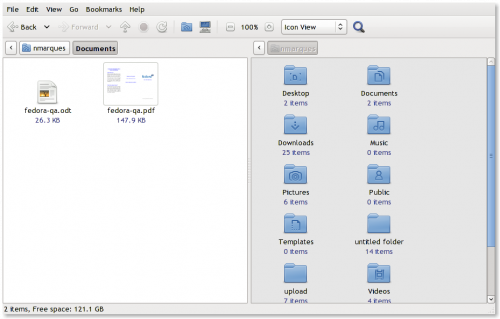
Another exciting new feature in GNOME 2.30.0 is the new GNOME Color Manager application that will make the delights of every photographer and artist, if not everyone's delights.
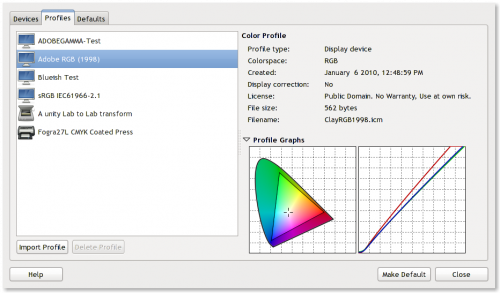
Networking in Linux has evolved a lot, and GNOME provides a nice applet (nm-applet) for NetworkManager, which was initiated by Red Hat Inc. in 2005 and currently maintained by Dan Williams. NetworkManager through nm-applet deploys easy networking to GNOME users; with 2.30.0 it comes with a new design and extra functionality:
- Bluetooth DUN
- Broadband Signal Status
- DHCPv6.
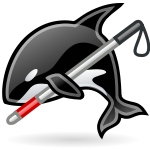
GNOME 2.30.0 also ships with ORCA, an open source scriptable screen reader which uses various combinations of speech, braille and magnification. The development of Orca has been led by the Accessibility Program Office of Sun Microsystems Inc. with contributions from many community members. ORCA is one of GNOME's promises in therms of providing accessibility to it's Desktop Environment, enabling many people to use a computer that otherwise wouldn't be able to.
A User's perspective
Everyday millions of people use Linux and GNOME to accomplish very different tasks; to communicate with others, to develop work in many distinct ways and for leisure. During this article we will present some of the most popular GNOME applications to the most common tasks.
Desktop Environment
Desktop Environment by Wikipedia, 1st May 2010 |
Communications
Personal Computers are widely used for communicating with others. GNOME provides applications that will meet most users needs to accomplish this tasks in a very friendly way, either for regular users or advanced users. There are many projects that offer good integration with GNOME, being the most popular:
- Evolution - an e-mail, address book and calendaring application that offers outstanding functionality either for regular or more demanding users.
- Empathy - one of the favourite Instant Messaging clients amongst GNOME users, being rivalled by Pidgin.
- Ekiga - formerly known as GnomeMeeting, a video conferencing and softphone application that also provides IM capabilities.
- X-Chat - X-Chat is a very popular IRC client which provides a very clean and easy to use interface and integration capabilities.
Fedora and GNOME users will have no problems finding applications to handle their communication needs of every day. Bellow is a simple review of some of the most popular applications for this purpose available for the GNOME Desktop in Fedora 13 "Goddard".
Evolution
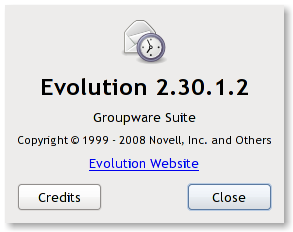
Evolution provides integrated mail, address book and calendaring functionality to the GNOME Desktop. Evolution has an extensive feature list and very accurate documentation besides being able to answer to most people's needs.
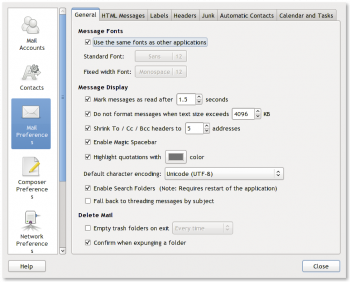
Evolution offers a very intuitive Wizard for the initial configuration that in a couple of minutes allows it's users to easily set-up their e-mail account using the most popular protocols. In addition also provides a very intuitive address book and a powerful calendaring experience. There are a wide set of plugins available, delivering extended functionality into Evolution.
Evolution is a reference amongst e-mail clients available for Linux and ships with GNOME 2.30.0 on Fedora 13.
Empathy
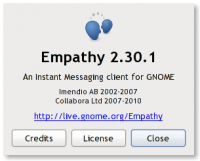
Empathy is GNOME's default Instant Messaging Client and supports text, voice, video and file transfers over many different protocols, alongside with a very distinct list of features. Amongst the supported protocols we can find: Google Talk, MSN/Live, AIM, Facebook, Yahoo!, ICQ, etc.
There is a wide offer for IM Clients, and Empathy competes directly with Pidgin which is a popular choice amongst GNOME users, also providing very similar features.
Ekiga
Ekiga is an open source SoftPhone, Video Conferencing and Instant Messenger application with very an extend feature list.
Multimedia
Totem
Rythmbox
Brasero
Graphics Manipulation
The Gimp
Inkscape
System Tools
Nautilus
GNOME Terminal
GNOME Control Panel
GNOME System Monitor
GPK Application
Production
Gobby
Gedit
Personal Review
Testimonials
Neville A. Cross, Fedora Marketing Team |
Nelson Marques, Fedora Marketing Team |
Rahul Sundaram, Fedora Developer |
Henrik Heigl, Fedora Ambassador and Fedora Marketing Team |

